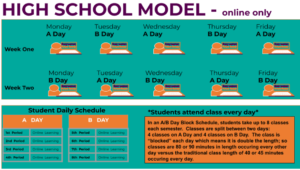Recovery in sight? Not for schools
With leading papers all reporting on recovery, can we assume the crisis is over? Stock portfolios may be on the mend, but folks that rely on property tax—states, counties, cities, and schools—will feel the impact of reset values and defaults for years to come.
Department of Education grants of $95 billion have helped and will help backfill some cuts. In 2010, high poverty districts in a half a dozen states (i.e., FL, LA, and a couple others that make rapid progress on data) that win phase one Race to the Top funding will be awash in Title 1 funding creating a financial schizophrenia of surpluses and deficits. But we’re talking about $1 billion in a $600 billion system rocked by the recession.
Most districts will experience several years of rising costs (e.g., contractual raises and increasing health care costs) and lagging revenues. Reserves are gone. Districts will continue making cuts while the rest of the economy rebounds. And don’t even think about bonds for dilapidated buildings—people feel broke and are increasingly worried about stimulus deficits.
About half of school funding comes from property taxes and they will lag the recovery by several years. Most states also use sales tax for school funding and this will rebound more quickly. But don’t be surprised when a district near you is still having trouble making ends meet when planning the 2011-12 school year.
Funding schools with property tax creates gross inequities. Without some statewide equalization, school funding reflects community wealth. Most states spend more money on rich kids than poor kids (Illinois being the worst). Read more about School Funding’s Tragic Flaw from the UW team that recently completed a five year study.
Bottom line: poor kids are going to take the brunt of lagging school funding. This will be especially true where they are trapped in states and districts with ‘race to the bottom’ leadership. That’s one more reason the advocacy work of Education Equality Project and Education Trust will remain vitally important for years to come.
With staggering unemployment in low income and minority communities, flagging interest in expanding access to health care, and school funding likely to be lousy for years to come, it’s a tough time to be an urban kid in America.








0 Comments
Leave a Comment
Your email address will not be published. All fields are required.